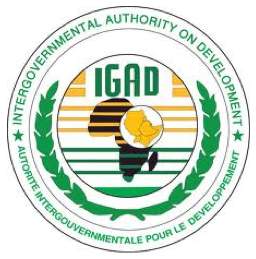The 34th Greater Horn of Africa Climate Outlook Forum (GHACOF) was organized by the Intergovernmental Governmental Authority on Development's Climate Prediction and Applications Centre (ICPAC) and other partners to formulate a regional climate outlook over the Greater Horn of Africa (GHA), which is prone to extreme climate events, such as droughts and floods, that severely impact on key socialeconomic sectors.
 11 June 2013: The 34th Greater Horn of Africa Climate Outlook Forum (GHACOF) was organized by the Intergovernmental Governmental Authority on Development’s Climate Prediction and Applications Centre (ICPAC) and other partners to formulate a regional climate outlook over the Greater Horn of Africa (GHA), which is prone to extreme climate events, such as droughts and floods, that severely impact on key socioeconomic sectors.
11 June 2013: The 34th Greater Horn of Africa Climate Outlook Forum (GHACOF) was organized by the Intergovernmental Governmental Authority on Development’s Climate Prediction and Applications Centre (ICPAC) and other partners to formulate a regional climate outlook over the Greater Horn of Africa (GHA), which is prone to extreme climate events, such as droughts and floods, that severely impact on key socioeconomic sectors.
The Forum, which convened from 29-31 May in Addis Ababa, Ethiopia, was organized around the theme “Building Resilience to Climate Related Disasters and Climate Change Adaptation in the GHA.”
Regional Climate Outlook Forums (RCOFs) have been useful for regional consensus building for seasonal predictions and applications. Users from a variety of sectors, such as disaster risk reduction (DRR), health, water resources, agriculture and food security, together with civil society and development partners, participate in formulating potential impacts of the climate outlook on their respective sectors. This year, the outlook indicates an increased likelihood of below- to near-normal rainfall over much of the GHA, although in central parts of the northern sector of the Horn, and in coastal and western parts of the equatorial sector, above-normal rainfall is more likely. To formulate such forecasts, experts drew on input from the World Meteorological Organization’s (WMO’s) Global Producing Centres for Long Range Forecasts (GPCs), national meteorological and hydrological services, and other sources. These inputs are combined into a regional outlook using probabilistic and deterministic modeling, alongside expert analysis and interpretation.
A partnership project between IGAD and UNITAR’s Operational Satellite Application’s Programme (UNOSAT) on ‘Disaster Risk Reduction Capacity Development for East Africa using Geospatial Technologies’ was also introduced during the Forum.
The Workshop on Water Conflict Management and Cooperation took place after the Forum, and focused on experiences from ongoing water cooperation programmes. The event, which was organized within the framework of the UN International Year for Water Cooperation 2013, addressed skills building training on managing and transforming conflict. [Forum Announcement] [Intergovernmental Governmental Authority on Development Website] [IGAD-UNOSAT Partnership Project Announcement]